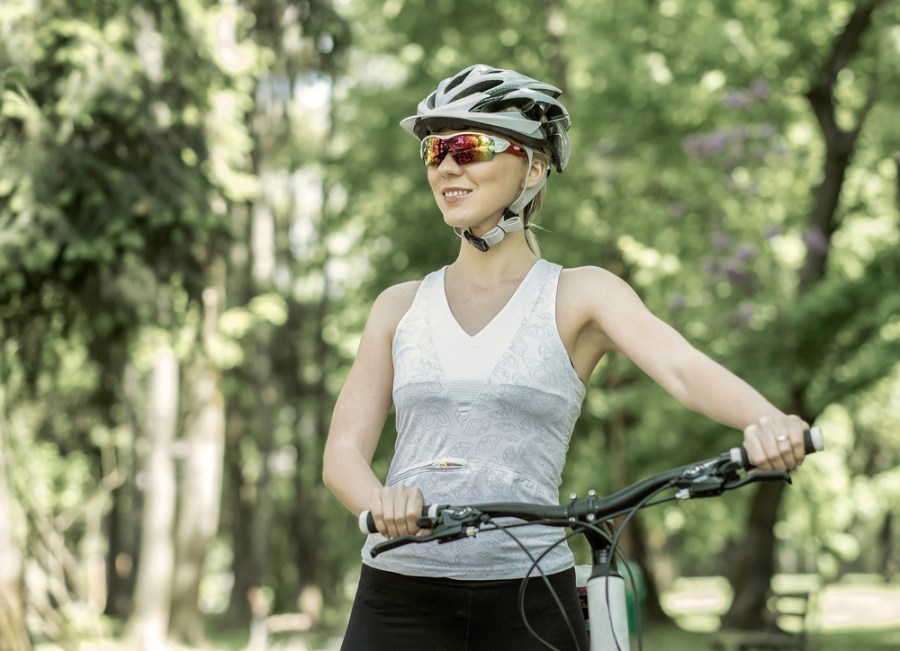There has never been a better time to get on your bike and enjoy the physical and mental benefits of cycling. The government and cycling charities have reported a huge spike in the number of individuals and families hitting the roads for a bike ride.
The government announced they are going to be spending £250m in England on improving cycling infrastructure like bike lanes, pavements, and bus routes.
That said, road cycling can still be hugely intimidating, with cars speeding past and accidents often being reported, all of which can understandably be very off-putting. The team at Parcours have put together six easy ways you can improve your confidence on the roads so that you can benefit from the sense of freedom, fresh air, and boost in fitness that road cycling offers.
1. Ride with friends or a club
One of the best ways to improve your confidence when road cycling is by teaming up with your friends or a cycling club. They say there’s safety in numbers and that certainly rings true in this instance. When cycling with a club, you’ll be among riders who are confident and experienced and who can give you advice and tips as you ride. It also means they’ll be able to signal for you if you’re not quite there yet and cars generally have to slow down more and pass wider when there’s a large group of cyclists as opposed to when you’re on your own.
2. Don’t feel pressured to go clipless
‘Going clipless’ refers to when you clip your cycle shoes into your pedals. It’s a great way of allowing you to cycle faster and more efficiently, but it isn’t for everyone. You may well have seen cyclists topple over when they miscalculated a stop and couldn’t get their foot out in time. It’s nothing to be ashamed of and we’ve all done it! However, stressing about getting your feet unclipped can add to the worries of road cycling and so if you are not confident with it, don’t feel like you have to use them. If you’re not racing, you don’t need them.
3. Ride on roads and streets you know well
A good way of building your confidence when cycling alone is by sticking to roads and streets that you know well, especially if they are quiet country lanes. Avoid busy roads, especially ones where there are likely to be lots of cars passing at a high speed and/or larger vehicles like lorries passing close to you. As you build your confidence, ride the same roads over and over so that you can focus on other bike skills and forget about navigation and traffic.
4. Go early on a Sunday morning
The most peaceful time to go cycling is always early on a Sunday morning before everyone else has got up. Roads are naturally quieter on Sundays and the earlier you go, the better. You’ll be able to enjoy the calm serenity of a hazy morning and bird song without worrying about dodging traffic or hearing lorries thundering past you. This will be the time when you can really enjoy the peace and mindfulness of cycling and discover why so many people love it as a way to clear their head and start their day.
5. Practise bike skills
If you don’t feel confident using one arm to signal, braking while descending, or cycling on wet roads, these are skills you will definitely want to practise. Once you have mastered bike skills, you will instantly feel more confident on the roads and will be able to handle any incidents that may occur. Whether it’s an unexpected gravel track or a steep hill, being confident in your abilities to handle the bike will go a long way.
6. Go tubeless
A useful way to improve your safety when road cycling is opting for tubeless tyres. Unlike traditional tyres, tubeless technology means you don’t need a separate inner tube which avoids the risks of failures such as punctures. This means you don’t need to stress about losing control of your bike because of a burst inner tube and no need to take a puncture repair kit with you when you ride. Going tubeless also allows you to ride with less pressure in your tyres for better traction, all of which are things that could add to peace of mind when you’re not super confident on the road.
More information
To find out more about Parcours, visit the Parcours website.







